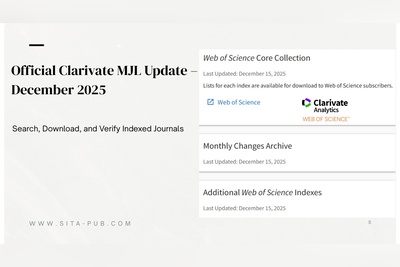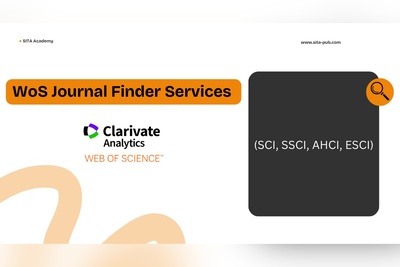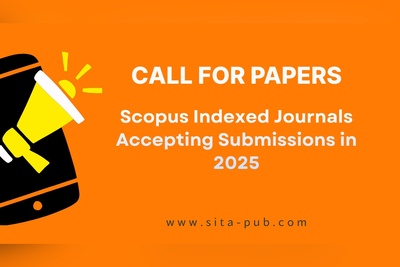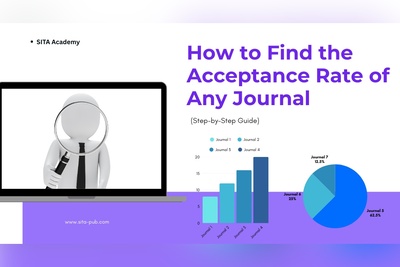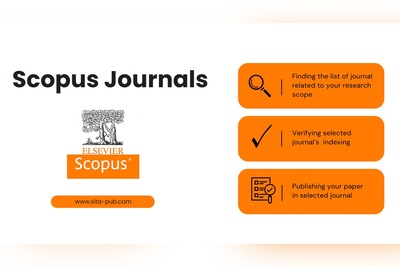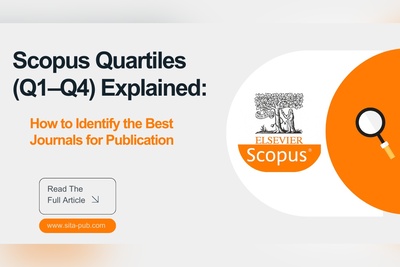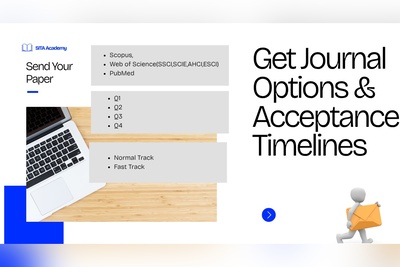Don’t Have a Ready Paper for Publication? Here’s What You Can Do
Discover practical ways to publish in Scopus and Web of Science journals in 2025—even if you don’t have a ready research paper. Learn how to transform your thesis or dissertation into multiple journal articles.
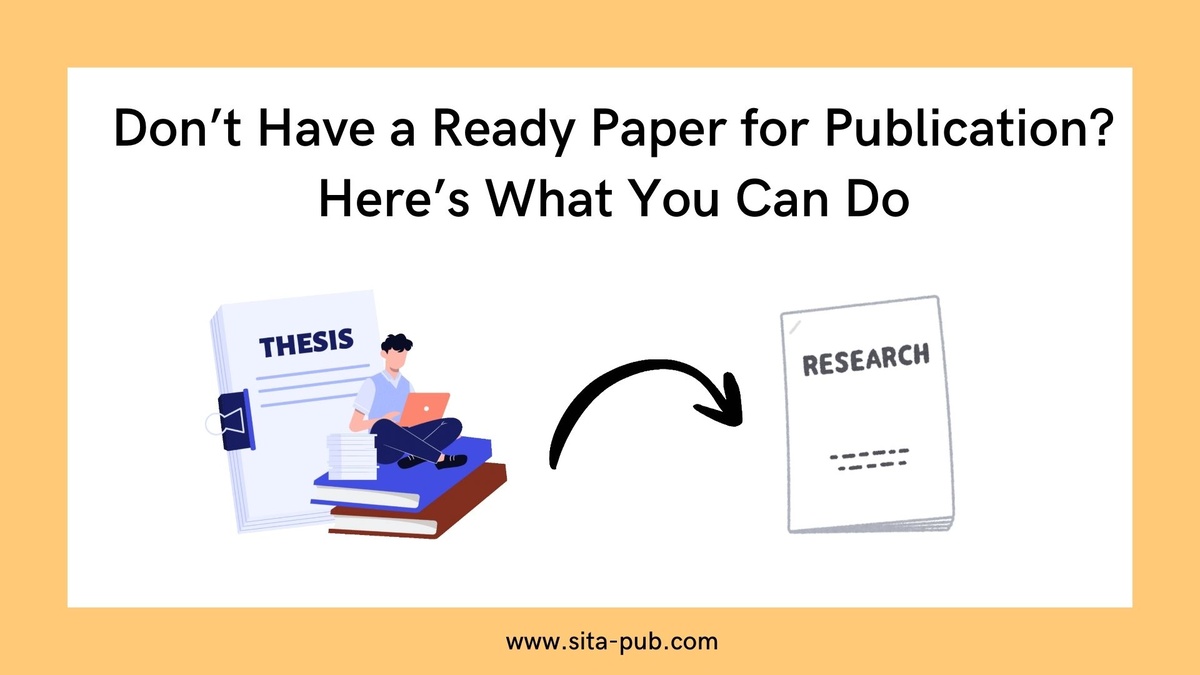
Publishing research is a vital part of every academic and researcher’s career. In today’s fast-paced academic world, the demand to publish regularly in reputable journals—especially those indexed in Scopus and Web of Science (WoS)—has never been higher. But what if you don’t have a ready research paper? Maybe you’re just starting, or your paper is still in progress. Don’t worry—there are practical ways to build your publication track record even if you don’t have a finished manuscript yet.
Why is Publishing So Important?
In academia, publishing isn’t just a checkbox—it’s the currency of recognition, career growth, and funding. Whether you’re a student, early-career researcher, or seasoned academic, getting your work published in high-quality journals—especially those indexed in Scopus or Web of Science (WoS)—opens doors you didn’t even know existed.
Here’s why publishing matters:
Enhances Your Credibility: Publishing in well-regarded journals demonstrates that your research has undergone thorough evaluation and meets high academic standards. It acts as a trusted endorsement within the scholarly community.
Expands Your Reach: Once your work is published, it becomes available to researchers and professionals around the world, increasing the chances of new partnerships, conference invitations, and greater citation impact.
Supports Career Progression: Academic institutions and funding bodies often consider publication records when making decisions about promotions, grants, and tenure. Having a solid portfolio of published research can open doors to advanced roles like postdoctoral fellowships or faculty appointments.

The Challenge: Writing from Scratch
Of course, the path to publication isn’t always smooth. Crafting a research paper from the ground up involves:
Designing your study and research questions
Collecting and analyzing data
Writing and revising multiple drafts
Formatting your manuscript to fit journal guidelines
All this can take months or even years. For many researchers juggling teaching, work, or family, this timeline feels overwhelming—and it’s a major reason why some delay or avoid publishing altogether.
If you’re feeling stuck, know you’re definitely not alone—and there are ways to overcome these hurdles.

How to Get Published Without a Ready Research Paper

If you don’t have a ready paper, here are some smart alternatives to get started with your publication journey:
1. Use Your Thesis or Dissertation as a Publication Source
Your thesis or dissertation is a valuable and often overlooked resource. It contains original research, detailed analysis, and extensive literature review, all of which can be reworked into journal articles. Even if you haven’t published before, your thesis offers a solid foundation to build upon.
Many researchers don’t realize that their thesis can be adapted into several smaller articles. For example, you could develop one article focusing on methodology, another on specific findings, and a third on theoretical implications. This modular approach not only increases your number of publications but also targets journals specializing in those subtopics.
Can a Thesis or Dissertation be Published in International Scopus and WoS Journals?
The short answer is yes—you can publish articles derived from your thesis in international Scopus and WoS journals. However, there are important ethical and editorial considerations to keep in mind:
Avoid Duplicate Publication: Since your thesis is often publicly available through university repositories, simply submitting it as-is to a journal is considered duplicate publication. Journals expect the article to provide fresh insights, be more concise, and tailored to their audience.
Proper Citation: Always cite your thesis or dissertation when publishing derived articles. Transparency about the original source is crucial to maintain academic integrity.
Manuscript Adaptation: Articles should be written in the journal’s preferred format, with focused research questions, clear arguments, and concise results. Thesis chapters often need significant editing to meet these standards.
2. Publishing Theses or Dissertations Written in Non-English Languages
What if your thesis is written in Arabic, French, Russian, or any other language apart from English? Many researchers worry this limits their chances of publishing internationally, but it doesn’t have to.
Here’s how you can still publish in reputable international journals indexed by Scopus and WoS:
Translation and Language Editing: Many top-tier international journals require submissions in English. Translating your thesis or dissertation into English is usually the first step. Professional translation combined with language editing ensures clarity, precision, and adherence to academic style.
Quality Over Language: Regardless of the language, the research must meet rigorous quality standards. Good methodology, clear presentation, and significant findings remain the keys to acceptance.
What is the Fastest Way to Turn Your Thesis into Scopus and WoS Articles?

Publishing derived articles from your thesis can still be a lengthy process without proper guidance. Here are practical ways to accelerate this transformation:
a) Break Down Your Thesis into Publishable Articles
Start by identifying parts of your thesis that can stand alone as journal articles. For example:
Your literature review can be reframed as a comprehensive review article.
Specific case studies or experiments can be developed into short communications or original research articles.
Theoretical contributions can be turned into concept or commentary papers.
This division helps you target different journals and increases the likelihood of quicker acceptance.
b) Use Research Centers and Publication Support Services
Professional research centers like SITA Academy offer expert assistance to help researchers publish efficiently:
Personalized Journal Matching: They analyze your research topic and match it with journals that fit your scope, desired impact, and budget constraints.
Manuscript Preparation: These services provide editing, formatting, and translation support to meet international standards.
Publication Strategy and Ethics: Guidance on ethical concerns, plagiarism checks, and navigating open access options.
Fast-Track Communication: Help in responding to reviewer comments and resubmission to minimize delays.
Working with experts reduces the common pitfalls of self-submission and significantly shortens publication timelines.
c) Plan for Ethical Compliance and Quality
Before submission, ensure your manuscript adheres to all ethical guidelines:
Use plagiarism detection tools to avoid unintentional overlap.
Properly acknowledge all sources, including your thesis if relevant.
Follow the journal’s submission guidelines meticulously.
High-quality, ethical manuscripts face fewer delays and have better chances of acceptance.
Conclusion
Not having a ready paper shouldn’t stop you from starting your publication journey. Your thesis or dissertation is a treasure trove of research that can be transformed into multiple journal articles. Even if your thesis is in a language other than English, options exist to help you publish internationally.
By breaking your thesis into manageable articles, seeking professional support, and adhering to ethical guidelines, you can navigate the complex publishing landscape with confidence.
Turn Your Thesis into a Scopus or WoS Publication with SITA Academy
At SITA Academy, we specialize in transforming your thesis or dissertation into publishable, high-impact articles for top international journals. Whether it’s in English, Arabic, French, Russian, or any other language, our experts will handle translation, adaptation, and formatting to meet Scopus and WoS standards.
Send us your thesis today for a free, detailed analysis—and let us turn your hard work into global academic recognition.
Verified Contact Channels
If you have any questions, inquiries, or would like to learn more about our services, please don't hesitate to reach out to us. Our dedicated team is ready to assist you.






